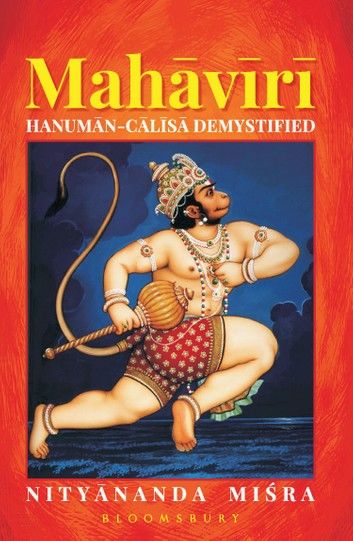The Hanuman Chalisa authored by Goswami Tulsidas is one of the most popular Hindu devotional hymns. The 'Mahaviri' Hindi commentary (1984) by Swami Rambhadracharya has been acclaimed as the best treatise on the Hanuman Chalisa. This book presents an annotated and expanded English translation of the 'Mahaviri' commentary by Nityanand Misra.
Each of the 43 verses of the 'Hanuman Chalisa' is explained in three stages. The first phase being a word-for-word translation to help the reader understand the literal meaning of each word in a verse. The second is a simple English translation of each verse. This third and final phase is an informed commentary on the true meaning of the verse, explaining the deep essence of the text with citations from authoritative Hindu scriptures (the Vedas, Upanishads, Puranas, Ramayana, Mahabharata, Gita, etc.) and other works of Goswami Tulsidas. All such citations are also translated into English.
Following the commentary, Misra also provides five useful appendices for advanced readers. These include more than 120 endnotes (annotations), a detailed note on the prosody and rhythm of all the verses for chanters, the musical notation of the traditional melody of the Hanuman Chalisa for devotional singers and instrumentalists, and two alphabetical indexes for all words and verses used in the hymn.
The book is a must-have for reciters and singers of the Hanuman Chalisa who want to understand the deep essence of Tulsidas's timeless hymn to Hanuman. It targets laypersons as well as scholarly readers. The design of the book, including font sizes and line spacing, is suitable for the elderly as well. The book has reached thousands of readers across the globe and has been praised as "the most comprehensive guide to the Hanuman Chalisa available in English†?. It has been loved by readers for not only its scholarship and research, but also for its beautiful production, aesthetic typeface, attractive layout, and excellent footnotes and appendices.











